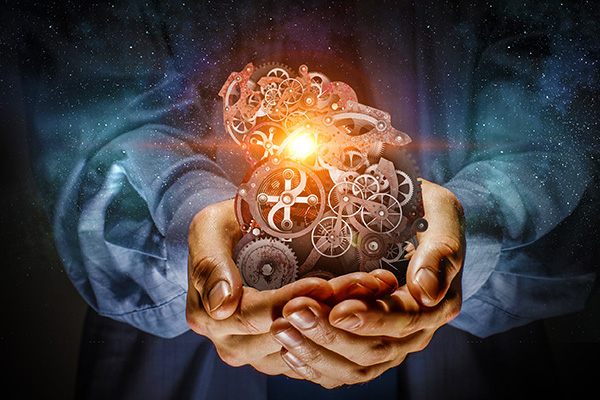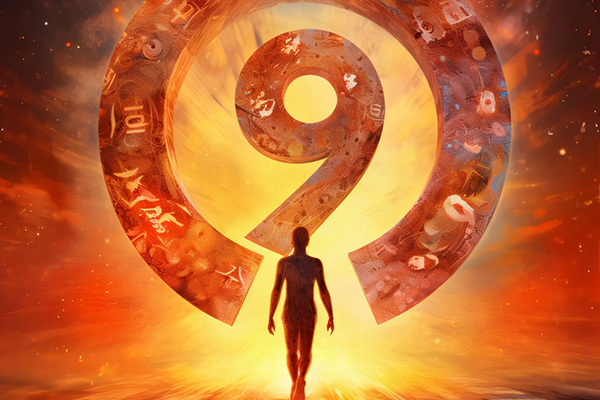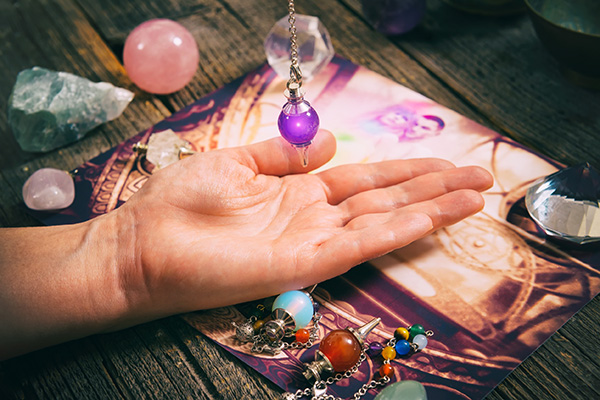The Psychic Technique Of Remote Viewing
 Recently, Brazilian psychic Chaline Grazik made waves when she predicted a plane crash during an Instagram live broadcast on August 8, 2024. Grazik urged her followers to start praying after she had a vision of a falling plane with many people on board. Sadly, the very next day, a tragic plane crash near São Paulo claimed the lives of 62 people.
Recently, Brazilian psychic Chaline Grazik made waves when she predicted a plane crash during an Instagram live broadcast on August 8, 2024. Grazik urged her followers to start praying after she had a vision of a falling plane with many people on board. Sadly, the very next day, a tragic plane crash near São Paulo claimed the lives of 62 people.
Psychic visionaries, or “seers,” have always piqued people’s curiosity. Known as clairvoyance, “psychic vision,” or “third eye seeing,” people with this psychic ability are able to see visual information about objects, people, places, or events in their mind’s eye without relying on the normal senses. It is a fascinating phenomenon that has woven its way through history and has had a significant influence on religion, metaphysics, spiritualism, and scientific research.
There are documented examples of psychic visions dating as far back as ancient times. One of the most famous is the Pythia or Oracle of Delphi in ancient Greece. She was known for her prophetic visions, including one given to King Croesus of Lydia in the 6th century BC. In a trance-induced vision, she foresaw him fatally cross a river. She then cryptically warned him, “If you cross the river, a great empire will be destroyed.” Croesus took this as a sign that he would triumph over Persia, but the prophetic vision ultimately meant the downfall of his own empire.
The Bible also has its share of references to psychic visions. For example, the prophet Isaiah described a vision of angelic beings surrounding God’s throne (Isaiah 6), while Peter had a vision of a sheet of animals descending from heaven (Acts 10), among many others.
The Role Of Free Will In Psychic Readings
 Free will is a common theme in psychic readings. People often wonder how much of their life is predetermined and how much they control their own future, destiny and happiness.
Free will is a common theme in psychic readings. People often wonder how much of their life is predetermined and how much they control their own future, destiny and happiness.
The truth is that our free will not only shapes our daily lives – it’s also at the core of who we are as spiritual beings on a human journey. Free will is inescapable in our lives. This is why it is a central theme in almost every spiritual, religious, and wisdom tradition.
Whether it’s the concept of karma in Hinduism and Buddhism, the moral responsibility to follow divine guidance in Christianity and Judaism, or the pursuit of virtue and inner peace in Stoicism and Taoism, the concept of free will has shaped our understanding of personal fulfillment, spirituality, and destiny since the dawn of humanity.
While interpretations of free will may vary, its presence in our lives is undeniable and determines how we experience life – unless, of course, one subscribes to an atheistic worldview that denies any higher power or spiritual framework for our existence. But even atheists must admit that their lives are also very much determined by their own choices and decisions.
We all have the inner power to shape our lives through our thoughts, beliefs, choices and actions. But with this freedom comes a great responsibility: karma. The ability to create our reality and shape our future has ripple effects that affect not only our own lives, but everything and everyone in the universe.
One of the great questions surrounding free will is the relationship between fate and personal freedom. Many spiritual beliefs hold that our lives unfold according to a divine plan or cosmic blueprint. But if everything is predestined, ordained by a higher power, and happens by divine design, why do we have the ability to make our own life choices at all? Why do we have free will if our lives are already set in stone?
The Soul Secrets Of Your Known Name Number
 Numerology, the ancient mystical study of numbers and its influence on our daily existence, goes far beyond calculating the meaning of your birth date.
Numerology, the ancient mystical study of numbers and its influence on our daily existence, goes far beyond calculating the meaning of your birth date.
While many people are familiar with the concept of the life path number, which is derived from one’s birth date, few realize that their known name number also holds profound insights into their character, destiny, and spiritual journey.
Also known as the expression number, the calculation of this number is a core component of numerology used by practitioners to explore one’s personality, potential, and life path. Calculating this number can be eye-opening and transformative.
Metaphysically, names are not arbitrary; they are energetic vibrations that carry specific meanings and influences.
Your known name is the name you go by in everyday life, whether it is the name your parents gave you at birth or a nickname that has stuck with you over time.
The name you identify with carries an energetic signature that reveals much about your personality, your purpose, and the unique challenges or gifts you may encounter in this lifetime.
In the practice of numerology, the letters in your name are assigned numerical values based on a system known as the Pythagorean Number Table, where each letter corresponds to a number from 1 to 9. By adding up the numbers associated with the letters in your known name, you can uncover several key numbers that offer insight into your personality, strengths, and life purpose.
How To Deal With Toxic Drama Royalty
 These days, there is drama, crazy-making and toxic behavior everywhere you turn. And it’s not just on social media and public transportation…many of us have to deal with people in our personal and professional lives who are overly demanding, entitled, melodramatic, mean-spirited, always in victim mode, or just plain unhinged.
These days, there is drama, crazy-making and toxic behavior everywhere you turn. And it’s not just on social media and public transportation…many of us have to deal with people in our personal and professional lives who are overly demanding, entitled, melodramatic, mean-spirited, always in victim mode, or just plain unhinged.
Sadly, many of these spiritually handicapped souls are people close to us, people we care deeply about. It can be daunting to deal with their toxic actions and volatile behaviors, and trying to ignore them is exhausting and even impossible in the long run.
But other people’s dysfunction and drama doesn’t have to weigh down your spirit, and it doesn’t always have to be so difficult to deal with, especially with some spiritual support and backup.
The first rule to remember is that love works better than anything else. So, the first step should also be to offer the “drama royal” plenty of compassion.
Chances are the drama king or queen in your life is wounded in some way. Dysfunctional behavior and toxicity often stem from unresolved hurt or deep trauma.
Many people who exhibit dramatic or demanding tendencies often aren’t aware of how their behavior affects others. They may be caught in a cycle of emotional turmoil and, as a result, seek external validation through attention and theatricality. Rather than focusing on the label “drama,” it’s helpful to think of these behaviors as expressions of unresolved pain or unmet emotional or spiritual needs.
The Spiritual Significance Of A September Cleaning
 Did you know that cleaning can be so much more than a boring chore? When done mindfully and with intention, it can become a transformative ritual that aligns our physical environment and the spaces in which we live and work with higher spiritual energies.
Did you know that cleaning can be so much more than a boring chore? When done mindfully and with intention, it can become a transformative ritual that aligns our physical environment and the spaces in which we live and work with higher spiritual energies.
By clearing away dirt, clutter, and disorder as a form of mindful meditation and cleansing ritual, you can also cleanse your inner being, releasing what no longer serves you and making room for new energies to flow. The act of cleansing can then serve as a bridge between the physical and spiritual realms, allowing the harmonious flow of life force energy, or chi, through your physical environment.
Everything in the universe is interconnected, including the spaces we inhabit. Metaphysically, our homes and workplaces are extensions of our own energy field. When these spaces are cluttered or dirty, they begin to affect or even block the flow of positive energy, leading to feelings of lethargy, confusion, and spiritual stagnation. More importantly, negative energy imprints and residues tend to accumulate in our homes through our interactions with other people and the outside world. Cleansing thus becomes an essential spiritual practice, similar to meditation or prayer, that helps restore balance, flow and harmony.
The physical act of cleaning is not only about maintaining order and hygiene in our surroundings, but also about aligning our internal energies and preparing our minds for deeper spiritual engagement. It’s like meditation, but with a broom and a mop!
By systematically organizing and cleaning, we can practice mindfulness and focus on the present moment and the task at hand. As unnecessary items are discarded and surfaces are cleaned, we experience a corresponding release of old emotions and thought patterns that no longer serve us. In this way, the simple act of wiping down a shelf or sweeping a floor can become a profound spiritual practice that connects us to the sacredness of the present moment.
The Karmic Lessons Of Our Past Lives
 Each lifetime offers us karmic lessons inherited from our past lives, often presenting what we perceive as hardship or misfortune, but are actually opportunities for soul growth.
Each lifetime offers us karmic lessons inherited from our past lives, often presenting what we perceive as hardship or misfortune, but are actually opportunities for soul growth.
These soul lessons are “karmic” because they were created or caused by our free will choices, decisions and actions in previous lives. They resurface in our current lifetime to be resolved, redeemed, released, and healed.
In ancient Sanskrit, karma (कर्म) literally means “action” or “deed.” It is derived from the root word kri, which means “to do” or “to act.”
According to many spiritual and philosophical tradition the essence of karma is that every action (physical, verbal, mental, spiritual) has consequences that reverberate through time and space and affect our present and future circumstances. Our actions in every lifetime create karmic ripples that influence the fabric of our existence, shaping our future life experiences and soul growth journey.
Karmic imprints are the energetic residues of our past actions, thoughts, and emotions that carry over from previous lives into our present existence. These imprints often manifest as recurring patterns, challenges, or opportunities in our current lifetime. The core principle is that our actions, thoughts, and emotions create a cause-and-effect relationship that extends beyond a single lifetime. Positive actions result in positive consequences, while negative actions result in negative consequences.
Karmic imprints are stored in the etheric energy field known as the Akashic Records, or Universal Consciousness, that records all human experience. When a soul reincarnates, it brings these imprints with it, influencing its experiences and choices in the current life.
The Mystical Art Of Pendulum Divination
 Divination, the ancient spiritual practice of seeking knowledge of the future and the unknown through supernatural means, has been an integral part of human history for millennia.
Divination, the ancient spiritual practice of seeking knowledge of the future and the unknown through supernatural means, has been an integral part of human history for millennia.
From the casting of lots practiced in various forms by indigenous and aboriginal cultures around the world using bones, stones, shells, and other natural objects, to the Tarot of 15th century Europe, to today’s cyber-divination and AI-powered fortune-telling, various tools have been used to connect with the spirit realm and uncover one’s destiny.
Among these tools, one of the most accessible and easy-to-use traditional methods of divination is the pendulum. The best part is that this simple yet powerful tool is already within reach, tucked away in your jewelry box or craft kit.
A pendulum is simply a weighted object attached to a chain, string, or cord. It can be as elaborate or as simple as you like – a crystal dangling from a silver chain, a beloved piece of jewelry, or even a simple stone tied to a piece of string. The key is to choose an object with some weight to it so that it will swing freely when held aloft.
Pendulum divination is a form of dowsing, a practice that dates back thousands of years and has been used to locate water, minerals, and even lost objects. Dowsing works by tapping into the subconscious mind, which is connected to universal consciousness and the spirit realm. When using a pendulum for divination, you are essentially asking your subconscious to communicate with you through the movements of the pendulum.
